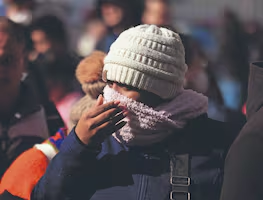Más Información
Mexico leads the world in coronavirus deaths among its healthcare workers , Amnesty International said in a new report Wednesday.
It said Mexico has reported 1,320 confirmed deaths from COVIID-19 so far, surpassing the United States at 1,077, the United Kingdom at 649, and Brazil at 634.
The report is likely to revive debate about Mexico’s extremely low coronavirus testing rate, with fewer than one in 100 Mexicans tested. While Mexican officials have bragged that all health care workers have gotten one test, that appears insufficient for people who face daily exposure over months.
Health professionals in Mexico have also held many protests over a lack of adequate personal protective equipment.
Recommended:
Steve Cockburn, Amnesty International’s head of economic and social justice at Amnesty International, called the worldwide death toll of over 7,000 health workers “a crisis on a staggering scale.”
“Every health worker has the right to be safe at work, and it is a scandal that so many are paying the ultimate price,” he said.
Cockburn urged an international cooperative effort to ensure that every health care worker has adequate protective equipment.
According to figures released last week, 97,632 nurses, doctors and other hospital employees in Mexico have tested positive for the coronavirus since the pandemic began — about 17% of all the country’s cases at that point. Mexico’s health sector statistics are normally announced on Tuesdays, but there has not been a report this week updating the figures.
Nurses accounted for 42% of those infected, doctors made up 27% and other hospital employees such as technicians, aides and maintenance and cleaning staff were 31%.
The government has claimed since March that hospital workers have had all the protective gear they need, but on several occasions hospital employees have blocked streets in Mexico City displaying what they said was ill-fitting, insufficient or substandard gear.
Death statistics
vary, depending on who each country classifies as a health care worker, how deaths are considered confirmed, and how they are reported.
The PanAmerican Health Organization, for example, lists 2,506 COVID-19 deaths among health workers in the Americas, including the same 1,320 deaths for Mexico but only 240 for Brazil and 660 for the United States.
Carissa F. Etienne, director of the agency, said Wednesday that the Americas has “the highest number of health care workers infected in the world.”
“In the U.S. and Mexico — which have some of the highest case counts in the world — health workers represent one in every seventh case,” Etienne said. “Countries must ensure that health workers can do their jobs safely.”
She said that means providing sufficient protective equipment for the workers and adequate training for them in effective infection control.
Such advice does not seem to have been followed in Mexico, where early in the pandemic there were at least two confirmed outbreaks at hospitals that sickened dozens of health care professionals.
Recommended:
In April, a public hospital in the northern steel town of Monclova became the center of a coronavirus outbreak that sickened at least 26 members of the medical staff and killed one of its doctors.
According to one hospital employee, a patient came to the emergency room at the Monclova hospital March 15 with acute respiratory distress. Once an intensive care doctor diagnosed it as a probable coronavirus infection, emergency room staff requested personal protection equipment, but it was not provided. During the week the patient was treated in the emergency room, three shifts of medical staff were exposed to him. The patient eventually died. Hospital workers began falling ill soon afterward.
The Amnesty report also notes that “there have been reports that hospital cleaners in Mexico are especially vulnerable to infection. Many cleaners in health settings in Mexico are outsourced, which means they have less protection.”
In addition, there have been several confirmed cases of infectious medical waste piling up at Mexican hospitals or being illegally dumped elsewhere.
mp










